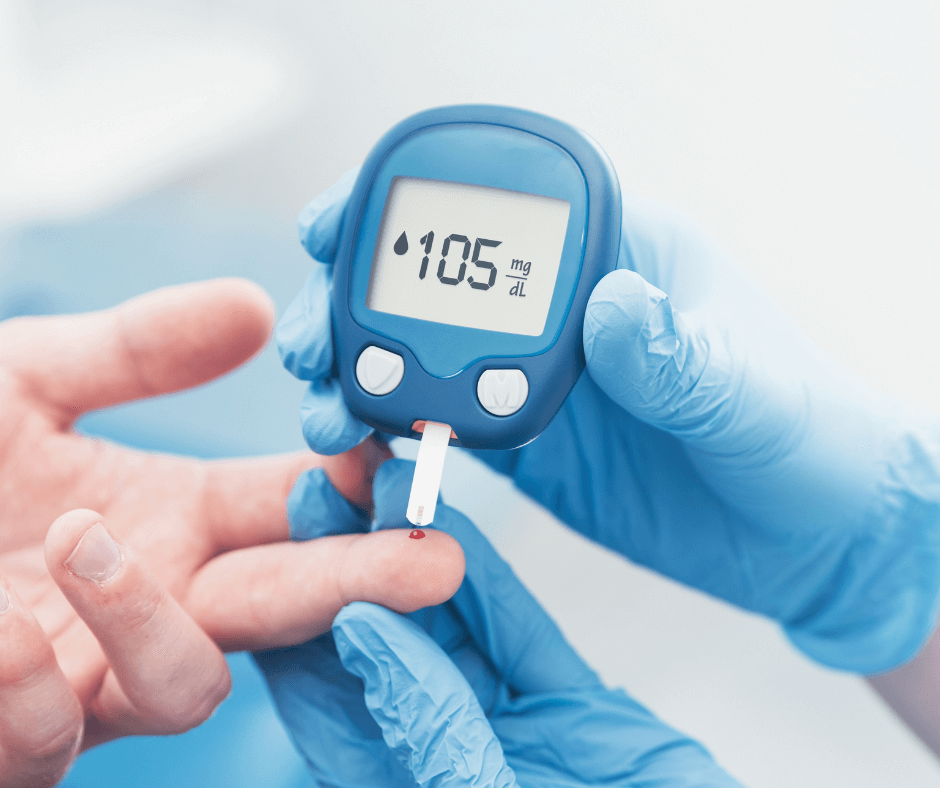Over 50? Postmenopausal? Do you know you could be at risk of having Diabetes?
Researchers who analysed data on 124,000 women found that those whose fertility came to an end in their mid-40s or earlier were 25% more likely to become diabetic than women who reached menopause between 46 and 55.
‘Epidemiologic studies linking sex hormone profiles with incident diabetes risk, have recently raised the possibility that menopause may increase diabetes risk as well’.
This report reviews studies of menopause and diabetes risk, as well as the potential mechanisms through which menopause might affect traditional and more novel diabetes risk factors.
Diabetes risk appears to be more strongly linked with factors associated with chronological aging and sex hormones rather than changes in menopausal status per se’.
Other factors like depression and sleep disorders have strong relationships with chronological aging.
Diabetes increases your risk of heart disease, stroke, and many other serious conditions, including blindness, kidney disease, and nerve disease.
Midlife weight gain – aging or menopause?
Australasian Menopause Society states that ‘between the ages of 45 and 55, women gain on average half a kilo a year and a total of 2.3 kg during the menopausal transition.
This weight gain has been attributed to aging rather than menopause in several studies.
However, in studies of body composition rather than purely BMI, it can be seen that menopause increases body fat and at the same time decreases fatfree body mass.
These opposing changes explain why menopause per se has not been found to have a marked effect on body weight or BMI in some studies.
The increase in body fat accompanying the hormonal changes of menopause is preferentially in abdominal/central and visceral fat deposits, which are associated with metabolic conditions such as cardiovascular disease and diabetes.
Achieving and maintaining a healthy weight can reduce the risk of age-associated diseases such as cancer, cardiovascular disease, and dementia.
Current Australian physical activity guidelines for adults 18–64 years, define physical activity as ‘any activity that increases breathing rate and heart rate’..
What can be done?
Evidence-based lifestyle strategies, including
sufficient sleep,
a healthy diet,
regular physical activity -
Potential benefits of physical activity for postmenopausal women include:
Improving blood lipids and blood pressure
Improving physical abilities – strength, coordination, balance, and endurance
Reducing the risk of osteoporosis
Reducing the risk of falls • reducing the risk of chronic diseases
To help improve blood pressure, cholesterol, heart health, as well as muscle and bone strength, the recommendation is for women to do either:
150 minutes (2.5 hours) of moderate-intensity physical activity weekly (eg brisk walking, recreational swimming, dancing, household tasks like cleaning windows/ raking leaves or pushing a stroller. or
75 minutes (1.25 hours) of vigorous-intensity physical activity weekly (eg. jogging, aerobics, fast cycling, organised sports, or tasks involving lifting, carrying, or digging).
stopping smoking, and limiting alcohol consumption.’
To read more about ‘Midlife weight gain – ageing or menopause? Click here or ‘Does menopause influence diabetes risk?’ click here



